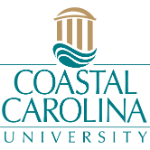Below is a summary of the abstract you submitted. Presenting author(s) is shown in bold.
If any changes need to be made, you can modify the abstract or change the authors.
You can also download a .docx version of this abstract.
If there are any problems, please email Dan at dar78@pitt.edu and he'll take care of them!
This abstract was last modified on April 1, 2025 at 8:31 a.m..

Bacteriophages are the most abundant biological entities in the universe; however, our understanding of phage gene function is limited. As part of SEA-GENES, our lab has taken a systematic approach to characterize the genes of bacteriophage Refuge, a non-integrating temperate phage that was isolated on Mycobacterium smegmatis. As a first step, we attempted to generate an inducible-plasmid library of all 92 Refuge genes inserted into pExTra. During construction of this library, a particular region of the Refuge genome was found to be deleted from our Refuge lysate. Although we readily amplified most genes, multiple attempts of PCR failed to amplify genes 73 to gene 83. Primers flanking this region allowed for amplification of a ~1 kb fragment vs a 4 kb product from an intact genome. Sequencing this amplicon confirmed a ~ 3 kb deletion caused by homologous recombination between a 6 bp sequence present in gene 73 and 83. The genes in this region have been synthesized and we’ve obtained a plasmid library which consists of all 92 Refuge genes, inserted into pExTra. After transforming the plasmid into M. smegmatis, we assessed the effects of individual gene expression on host cell growth via cytotoxic assays. Of the 47 genes that have been tested, half have been cytotoxic to their host’s growth. Through the construction of the Refuge plasmid library and subsequent individual gene cytotoxic assays, our lab has been able to establish biological significance to uncharacterized genes and increased understanding of phage gene function.
